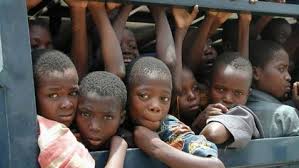With 69 children dying out of every 1,000 births in Nigeria, Rotary International has expressed deep concern over the country’s worsening maternal and child mortality rates, describing the situation as tragic yet preventable.
This came as the Rotary Club of Kaduna state distributed birthing kits, treated mosquito nets, and essential maternal supplies to 200 pregnant women during a health outreach in Kaduna.
Speaking at the event, Tuesday, Rotary Club president, Ahmed Tijjani, said the country’s infant mortality rate ranks second globally, while Nigeria holds the third position in maternal deaths worldwide, a situation he attributed to weak health infrastructure and preventable diseases such as malaria, diarrhea, and pneumonia.
“According to global statistics, Nigeria occupies a third position as the country with highest number of maternal mortality and world’s second of infant mortality with 69 per 1,000 live births.
“Today’s outreach shows the level of desperation among vulnerable women, even in urban centres like Kaduna. “We had budgeted for 200 women, but we were overwhelmed and had to stretch beyond what we prepared,” he said.
He warned that unless government and development partners scale up investment in rural and primary healthcare, maternal and child mortality rates will remain alarming.
At the event, hundreds of women queued patiently to receive the kits, which contain insecticide-treated nets, delivery supplies, and toiletries meant to ease childbirth and prevent complications.
Some of the beneficiaries described the intervention as “life-saving.” A pregnant woman, Hauwa Ibrahim, said she had not attended any antenatal clinic due to financial constraints before benefiting from Rotary’s supplies.
“I am grateful. With this mosquito net and delivery pack, I feel more prepared. Before today, I had nothing,” she said.
Tijjani noted that Rotary’s outreach will continue in rural communities, where the need is most critical.
“Maternal and child health is not just a government issue. Civil society, private sector, and individuals must join hands to stop this national tragedy,” he added.
